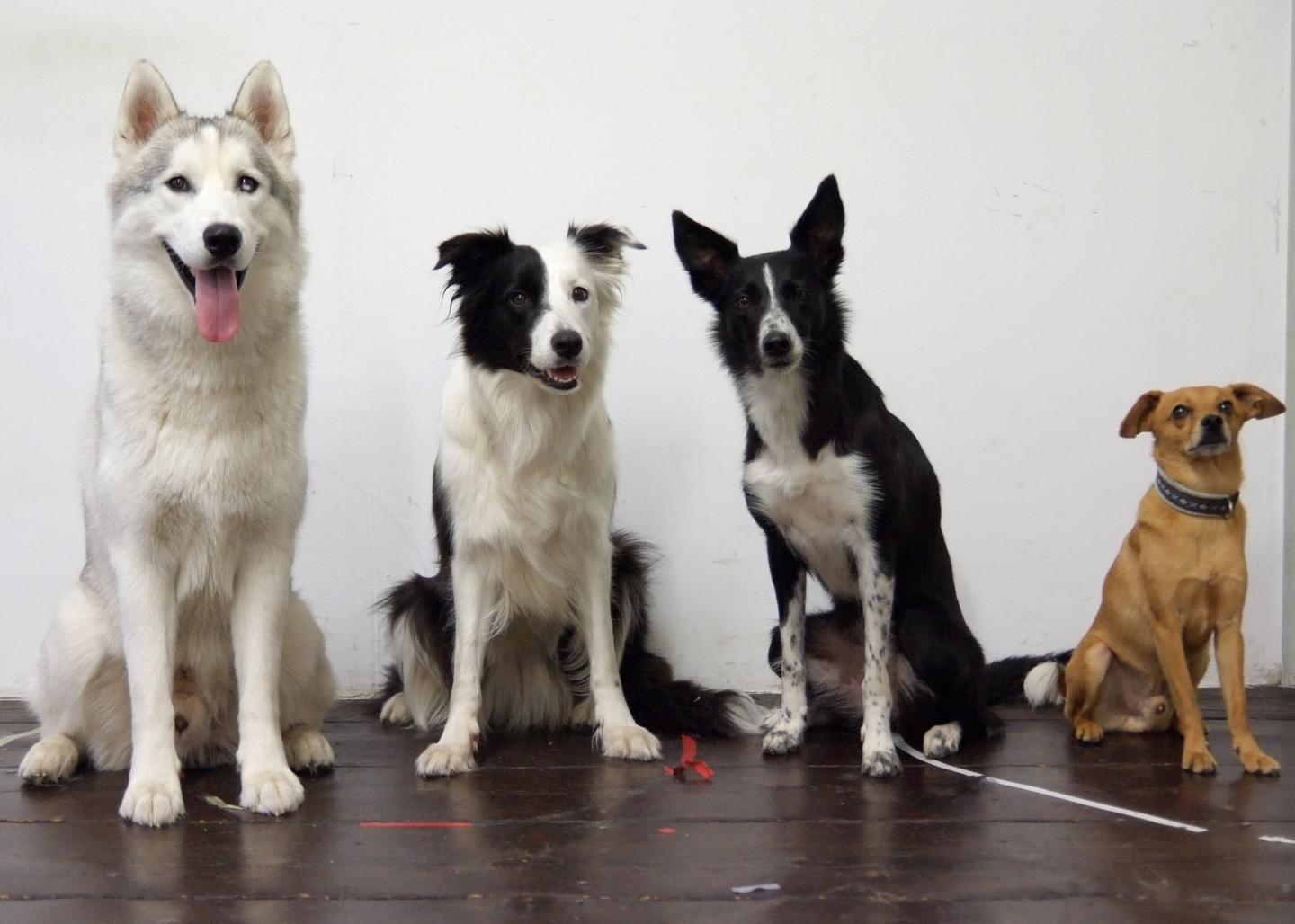People discriminate between quantities because it is a way to make decisions - armies are less likely to want to attack when the defense outnumbers them - but with animals it is more clear, lions, chimpanzees and hyenas will not attack at all if they don't have superior numbers.
These animals use numerical information to make decisions about their social life.
Testing numerical competence
In 2012 Friederike Range and Zsofia Virányi from the Messerli Research Institute at the University of Veterinary Medicine Vienna showed that wolves are capable of discriminating between different food quantities. In their present study, they asked whether dogs also possess this skill or if this form of numerical competence was lost through domestication.
For the study, Range and her colleagues from the Department of Comparative Cognitive Research tested 13 crossbreed dogs raised at the Wolf Science Center in Ernstbrunn. The animals are living there together in different packs. The researchers tested the dogs for their quantity discrimination skills by presenting pieces of cheese. Those pieces were sequentially placed into two opaque tubes - one on the left and another on the right side. Eventually, the dogs had to decide which tube contained more cheese pieces than the other. By pressing the correct buzzer, the dogs were rewarded with cheese from the respective tube. Furthermore, the dogs did not see the person placing the cheese into the tubes, which excludes the human influence as a factor.
"We deliberately performed the test in such a way that the dogs never saw the full quantity of food at once. We showed them the pieces sequentially. This allows us to exclude the possibility that the dogs were basing their decisions on simple factors such as overall volume. The dogs had to mentally represent the number of pieces in a tube," explains first author Range.
Dogs performed worse than wolves
Range and her colleagues compared the results of the wolf test with those from the dog test. The comparison showed that dogs were unable to discriminate between difficult comparisons such as two pieces of food versus three or three pieces versus four. The wolves, in comparison, fared much better. "Dogs are better able to discriminate the quantities of food when they can see them in their entirety," says Range. "But this requires no mental representation."
Numerical competence lost with domestication
Range and her team are now investigating why the dogs performed so poorly in these tests. Is it because they have difficulties processing numerical information or is it their lacking ability for mental representation? It is possible that one of these skills was lost over the course of domestication. Human beings could be to blame. "Compared to wolves, domestic dogs no longer have to search for food on their own. They have a secure place to sleep and even mating decisions are made by people. Dogs are thus excluded from natural selection," Range explains.

Dogs probably lost their skill to discriminate quantities during domestication.
(Photo Credit: Clever Dog Lab / Vetmeduni Vienna)